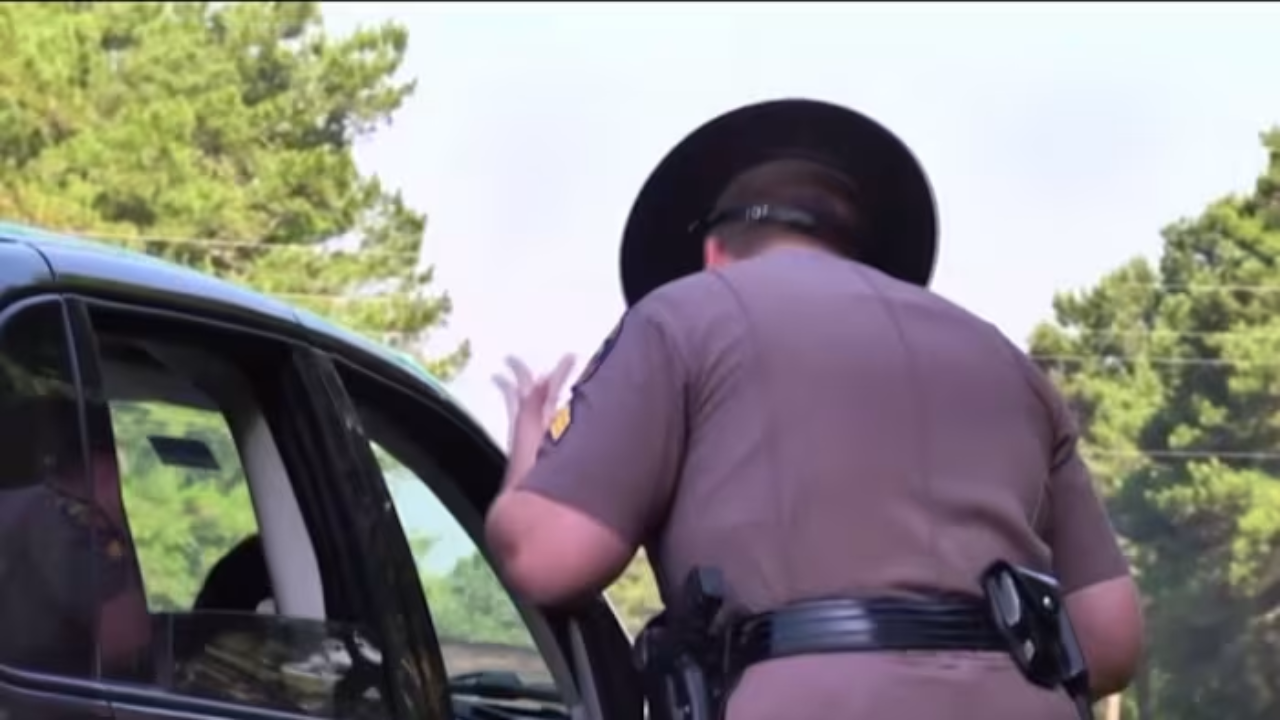An email reportedly circulated within the Florida Highway Patrol (FHP) has instructed troopers to remove their name tags when participating in operations with U.S. Immigration and Customs Enforcement (ICE). The directive, which is said to be aimed at protecting officers’ safety, has raised questions about transparency, accountability, and the implications for law enforcement identity during controversial immigration enforcement actions.
The message, shared with News 6 Orlando, states that troopers should remove their name tags from their Class B uniforms when working on specific ICE operations, notably “Operation Closeout.” The email reads:
“There has been a lot of activity and many recordings of us posted online when working with ICE. For officer safety, remove your name tag from your Class B uniforms only when working Operation Closeout.”
Troopers are advised to replace their name tags once they return to regular shifts or patrol duties not associated with ICE collaborations.
Understanding the Directive and Uniform Policy
The Class B uniform is typically worn by FHP troopers during special assignments or enforcement operations. Unlike standard patrol uniforms, these are sometimes donned for specific task forces or activities. The instruction to remove name tags specifically applies to these uniforms during the ICE operations.
According to the publicly available Florida Highway Patrol Uniform Policy manual, modifications to standard uniform wear, including removal of name tags, require explicit authorization from the Director or a designated official. However, it remains unclear if such approval was formally granted for this directive.
Inquiries made to the FHP office in Orlando and the main headquarters in Tallahassee about the email and any official policy changes were unanswered at the time of reporting.
Context: FHP’s Role in ICE Immigration Enforcement
This directive comes on the heels of a significant ICE operation in Tallahassee, Florida, where more than 100 undocumented immigrants were arrested with assistance from the FHP. Governor Ron DeSantis has publicly emphasized the FHP’s leading role in immigration enforcement efforts nationwide. Under his administration, Florida’s law enforcement agencies have increasingly partnered with ICE in crackdowns on undocumented immigration.
Such collaborations have attracted both support and criticism. Supporters argue that close coordination between state law enforcement and federal immigration authorities strengthens border security and public safety. Critics, however, raise concerns about civil rights, racial profiling, and community trust in police when local officers work alongside federal immigration agencies.
Why Remove Name Tags?
The email cites “officer safety” as the primary reason for instructing troopers to remove name tags during ICE operations. Officers working these enforcement actions have reportedly been recorded on social media and other platforms, sometimes attracting harassment or threats afterward.
Removing name tags can make it harder for individuals to identify specific troopers by name, potentially reducing targeted harassment or doxing. However, this practice can also impact public accountability by making it more difficult for civilians to identify officers during or after enforcement actions.
Balancing Officer Safety and Public Accountability
Law enforcement agencies nationwide face increasing scrutiny over transparency and accountability, especially during contentious operations. Removing name tags may protect officers from personal threats but can erode public trust if seen as a way to avoid responsibility.
In Florida, troopers typically wear name tags as part of their uniform to maintain clear identification. The FHP’s uniform policy emphasizes that any deviation from the standard dress code must have formal approval. This standard is intended to ensure officers remain identifiable, which is crucial in maintaining public confidence.
Legal and Policy Frameworks
The Florida Highway Patrol operates under state laws and internal policies that govern uniform standards and conduct. According to the Florida Statutes, law enforcement officers must conduct themselves in ways that promote public confidence in law enforcement. Uniform identification is one such standard.
On the federal side, ICE’s operations fall under the Department of Homeland Security (DHS) and Customs and Border Protection (CBP). Both DHS and CBP maintain policies regarding the identification of officers during enforcement actions. However, collaboration with local or state agencies like the FHP may introduce variations depending on local policies.
Government Resources for More Information
For those interested in learning more about Florida Highway Patrol policies and procedures, the official Florida Department of Highway Safety and Motor Vehicles (FLHSMV) website provides detailed resources:
To understand federal immigration enforcement policies and officer identification protocols, the Department of Homeland Security offers information on ICE and CBP operations:
Public Reaction and Broader Implications
The directive to remove name tags during ICE operations has sparked a mix of responses from community members and legal advocates. Some express concern over a perceived lack of transparency and accountability in immigration enforcement conducted in collaboration with local police. Others highlight the real risks law enforcement officers face when their identities are publicly exposed during politically charged operations.
This issue also touches on the larger debate over local law enforcement’s role in federal immigration enforcement and the balance between officer safety and public trust. It remains to be seen if the FHP will issue further clarifications or revise its uniform policies to address these concerns.


